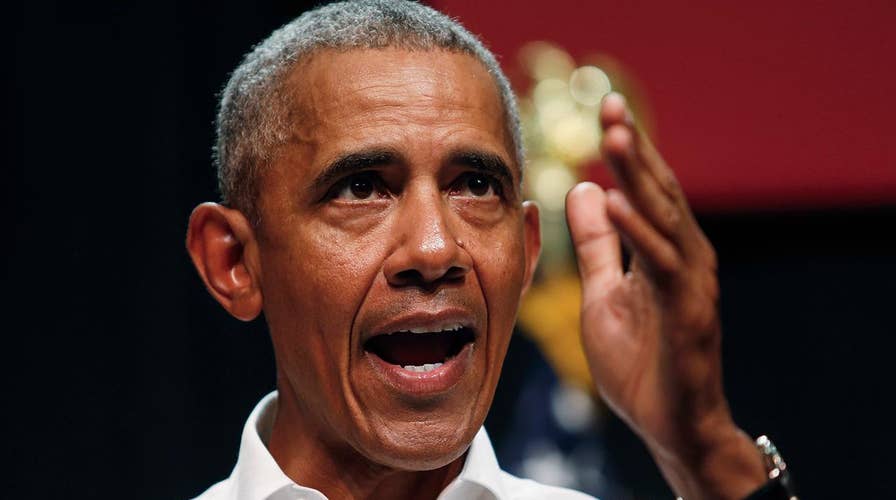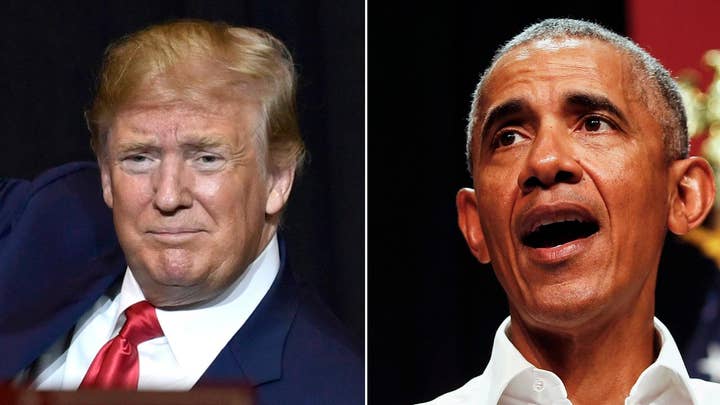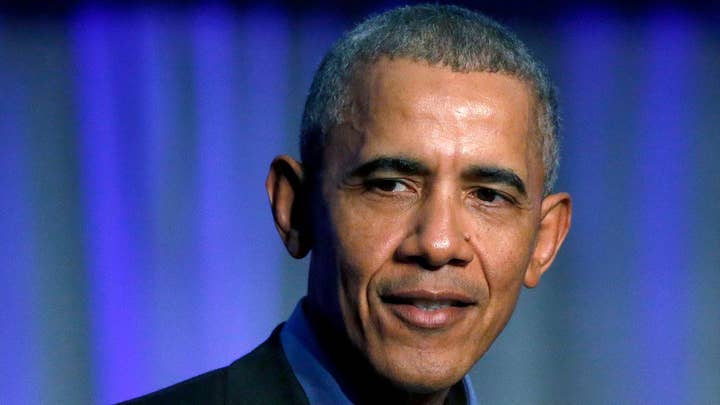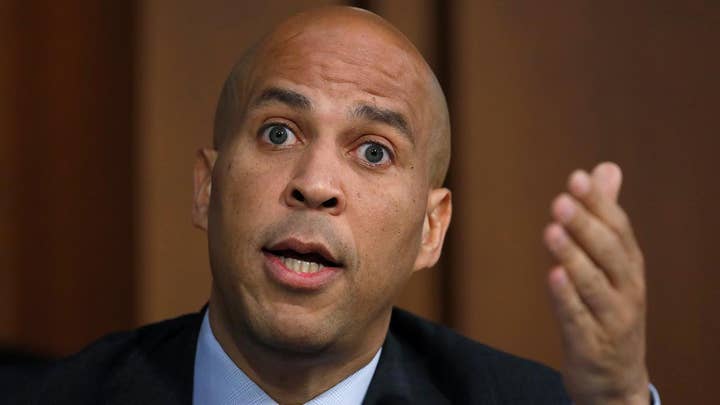Impact of Obama's return to campaign trail
Former President Obama reenters the political sphere with a campaign speech calling out President Trump and a big campaign trip to California.
After leaving office, most modern presidents have largely eschewed partisan activity and avoided the normal rough-and-tumble of politics.
Some former presidents would do an occasional private fundraiser for candidates, appear at campaign rally or two, or deliver an address at the party’s national convention, as former President Clinton did in 2012, nominating President Obama for re-election.
Even then, President Clinton aimed to rise above politics. Sure, there was fulsome praise that night for President Obama and his record. But there was also explicit praise for several Republican presidents – Eisenhower for the integration of Arkansas schools, Reagan for welfare reform, Bush 41 for education standards and Bush 43 for confronting AIDs in Africa.
Most modern ex-presidents have similarly handled their post-White House political activities by accentuating the positive about their party and its candidates, rather than turning themselves into attack dogs.
Not so President Obama. He launched himself into the campaign for the Nov. 6 midterm elections with a speech Friday at the University of Illinois, Urbana-Champaign.
The Democratic former president delivered a full-throated, highly partisan address designed to make the midterms an Obama-Trump matchup. It was followed quickly by an appearance in Orange County, California, to stump on behalf of Democratic candidates, in the first of many planned campaign swings.
The Obama speech had a few grace notes – for example when he suggested that “making democracy work means holding onto our principles … and then having the confidence to get into the arena and have a serious debate.” He also encouraged every citizen to get involved, saying “self-government only works if everybody’s doing their part.”
President Obama also praised President George Washington for “gracefully exiting the political stage, making room for new voices and new ideas.” But then Obama engaged in the fiction that he could somehow “deliver a simple message” about the midterms “as a fellow citizen, not as an ex-president.”
But Barack Obama is and will always be both a citizen and an ex-president. Most of his University of Illinois speech was the worst kind of political hit job.
Despite saying “we won’t win people over by calling them names,” Obama proceeded to call his political opponents names.
Republicans are “politicians who have no compunction and no shame about tapping into America’s dark history of racial and ethnic and religious division,” President Obama said. They are “bigots and fear-mongers” and “demagogues” who “promise simple fixes to complex problems.” As for the Republican agenda, “it’s not conservative. … It’s radical.”
Obama questioned the motives of those on the other side of the aisle. He said that if you don’t stand with him, then it was because you are part of “the powerful and the privileged who want to keep us divided and keep us angry and keep us cynical because that helps them … keep their power and their privilege.”
Those who oppose higher taxes and redistribution of income do so because they are “at the top of the economic pyramid” and want “to skew things even more in their direction,” the former president said.
President Obama also just plain made stuff up, for example attacking the Republican Congress for having “championed the unwinding of campaign finance laws” and “systematically attacked voting rights.” Just what the heck is he talking about?
In his University of Illinois remarks, President Obama also couldn’t escape his tendency to be sanctimonious. For example, the man who in 2016 dealt with Russian election meddling by sharing stern words with Vladimir Putin in private at an international meeting now castigates Republicans for “cozying up to Russia.”
This comes after Republicans in Congress led bipartisan efforts to pass new Russian sanctions in 2017, and after the Trump administration has slapped several rounds of sanctions on dozens of Russians – the most recent in August – and indicted the Russian spies who led the election meddling.
Some of Obama’s remarks came across as tone-deaf or even hypocritical, as when he said – after all his punishing attacks against Republicans across-the-board – that “we have to bring people together, not tear them apart.”
Another example of this hypocrisy came when the former president encouraged Democrats not “to do the same things to Republicans that they do to us, adopt their tactics, say whatever works, make stuff up about the other side.”
Those words came at the end of a week when Sen. Cory Booker, D-N.J., declared “I am Spartacus” and said he was willing to risk expulsion from the Senate for releasing confidential documents dealing with Supreme Court nominee Judge Brett Kavanaugh – even though the documents had already been approved for release.
At the same Senate Judiciary Committee hearing on Kavanaugh’s nomination, Sen. Kamala Harris, D-Calif., suggested that Kavanaugh committed perjury – without a shred of evidence to back up the suggestion,
President Obama’s speech was also narcissistic, stuffed with “I” and “my” and “me” and the papal “we.” For example, he claimed sole credit for ending the fiscal crisis with policies “that returned the economy to healthy growth.”
But didn’t Obama’s Republican predecessor – President George W. Bush – propose and sign into law the legislation that pumped liquidity into the banks, stopped the auto companies from going belly up and stabilized the financial system?
No mention of that, just the declaration that “we” – meaning Obama – “pulled the economy out of crisis.”
It’s all so tiresome, but will it be effective? The answer is mixed.
Yes, Obama’s abandonment of the traditional post-presidential demeanor so he can take up the cause of partisan warrior will help Democrats raise money. It will, on the margin, help increase Democratic turnout.
But President Obama’s barnstorming in the fall of 2016 didn’t save Hillary Clinton. His most effective contribution to Democrats will be to draw attention to the argument that America needs as “a real check” on the Trump administration.
Obama’s presence will also stir up – again on the margin – GOP turnout, bringing home some suburban Republicans who like Mr. Trump’s policies, dislike the man and his tweets and are reminded by Obama’s tedious rhetoric why they wanted change in 2016.
However, the biggest impact on all this negative politicking will be to show Mr. Obama is a self-absorbed partisan warrior, not the senior statesman around whom Americans can rally.
Is the country better served by another political hit man instead of a respected former president who rises above petty partisan concerns? Maybe George Washington was right and President Obama should gracefully surrender the political limelight and strive to assume the mantle of statesman.












































